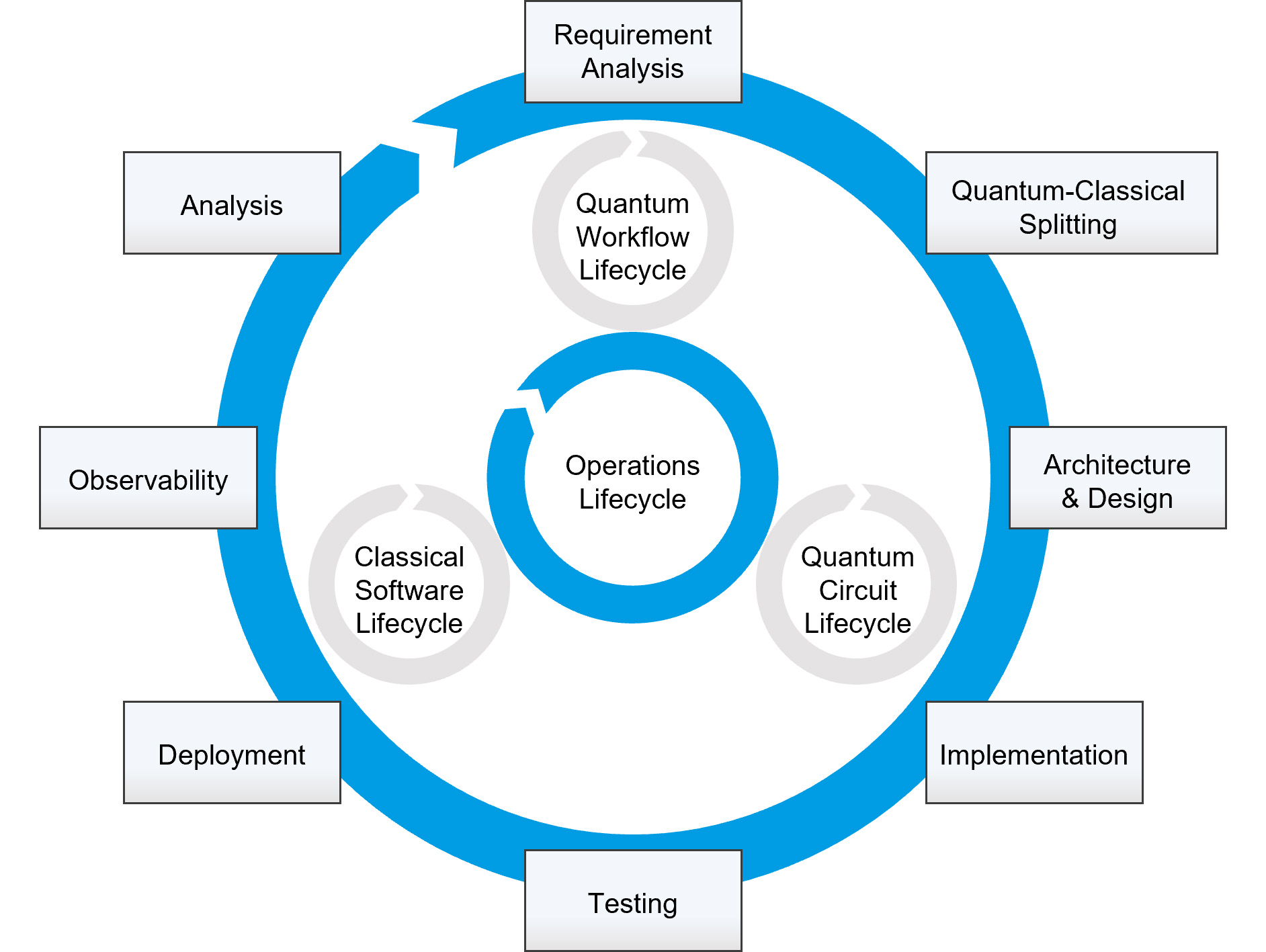Industrially relevant Quantum Computing (QC) applications are almost always hybrid – that is, classical systems are used in combination with quantum circuits. Variational algorithms play a central role in the NISQ (Noisy Intermediate-Scale Quantum) era to achieve quantum advantages. This makes the use of quantum computing more complex and mostly the applications arise in a very ad hoc or experimental way.
In the project »EniQmA« (Enabling Hybrid Quantum Applications) we are working together with partners from research and industry to systematize these hybrid approaches in a targeted way. We provide support in the cross-departmental project for the structured development of hybrid quantum applications through software, methods and tools. We help with the orchestration of classical software and quantum software. For this purpose, our EniQmA team creates a set of tools for the entire lifecycle of hybrid quantum applications.

